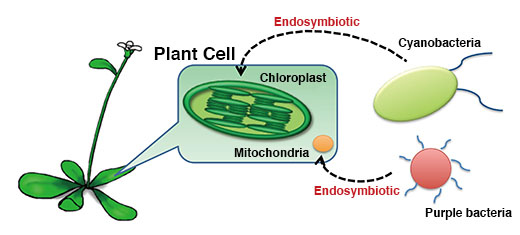Research Highlights
Impact of the plastidial stringent response in plant growth and stress responses
Abstract:
The regulatory nucleotide guanosine 5′-diphosphate 3′-diphosphate (ppGpp), which was originally identified in Escherichia coli, controls the expression of a large gene set and many enzyme activities. The ppGpp-dependent control of cell activities is referred to as the stringent response. Recently, genes responsible for the synthesis and degradation of ppGpp have been identified not only in bacteria, but also in eukaryotes, including plants and animals, indicating that the stringent response is, unexpectedly, widely conserved. However, the exact function of the eukaryotic stringent response remains elusive. Here, we isolated an Arabidopsis mutant that overproduces ppGpp in chloroplasts. This mutant shows metabolite reduction, dwarf chloroplasts and significantly suppressed plastidial transcription and translation. Under nutrient-deficient conditions, the mutant shows more robust growth than the wild type. These results indicate that the ppGpp-dependent control of the organelle function is crucial for the systematic growth of host organisms.

Reference
Authors: Mikika Maekawa, Rina Honoki, Yuta Ihara, Ryoichi Sato, Akira Oikawa, Yuri Kanno, Hiroyuki Ohta, Mitsunori Seo, Kazuki Saito & Shinji Masuda
Title of original paper: Impact of the plastidial stringent response in plant growth and stress responses
Journal: Nature Plants
DOI : 10.1038/nplants.2015.167
Contact
Associate Professor Shinji Masuda
Department of Biological Sciences,
Graduate School of Science
Email shmasuda@bio.titech.ac.jp
Tel +81-45-924-5737












